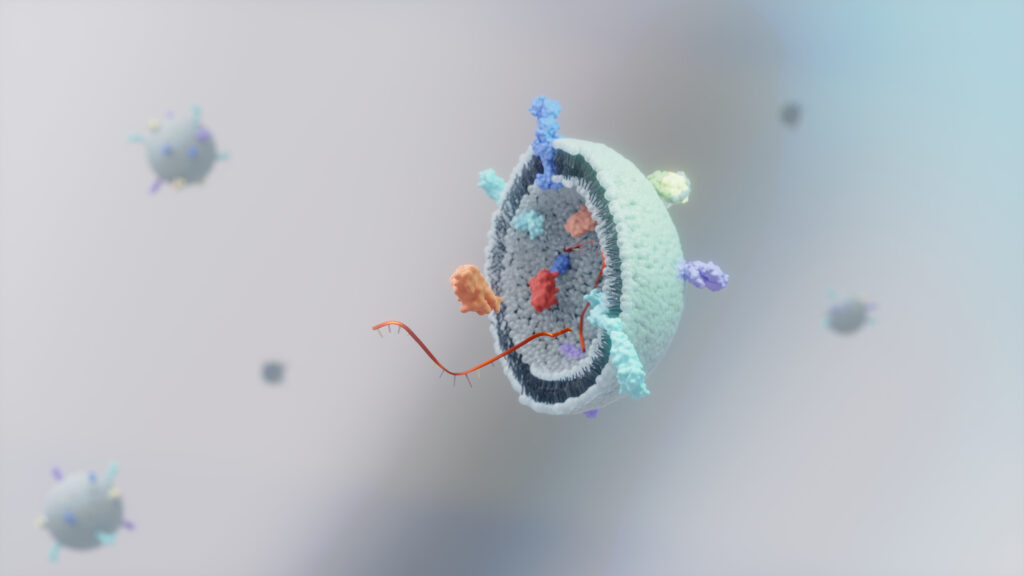Spinal cord injury (SCI) is a prevalent and severe condition that poses significant challenges to the central nervous system. Despite its common occurrence, effective clinical treatments remain largely inadequate, leaving many patients with limited options for recovery and rehabilitation. Recent advancements in regenerative medicine have shed light on the potential of mesenchymal stem cell-derived exosomes (MSC-Exos) as a promising therapeutic avenue for alleviating the effects of SCI.
MSC-Exos have garnered attention in the scientific community for their ability to influence various biological processes that are critical for healing after spinal cord injuries. These exosomes are tiny vesicles secreted by mesenchymal stem cells and play a vital role in modulating the microenvironment, promoting angiogenesis (the formation of new blood vessels), and facilitating axonal regeneration, which is essential for restoring neural function. However, the clinical application of natural exosomes is hampered by several limitations, including low yield, weak biological activity, and insufficient targeting capabilities.
In recent years, researchers have intensified their focus on MSC-Exos, seeking innovative methods to enhance their efficacy in treating SCI. Techniques such as microRNA modulation, the use of combined hydrogels, and preculture strategies have emerged as key areas of investigation. These approaches aim to improve the therapeutic potential of MSC-Exos, making them more effective in clinical settings.
Furthermore, the versatility of exosomes extends beyond their natural functions. They have been recognized as excellent biocompatible carriers for drugs, nucleic acids, and other therapeutic agents, presenting exciting possibilities for treating SCI. Their ability to encapsulate and deliver these substances effectively could revolutionize treatment protocols and improve patient outcomes.
In a recent review article, the authors Yan Xu, Xuesong Wang, Xiaolei Zhou, Wenhui Zeng, Jiayi Yuan, and Junsong Ye systematically summarize the pathogenesis of SCI and the latest research progress regarding MSC-Exos in treatment strategies. This comprehensive examination not only highlights the mechanisms through which MSC exosomes exert their effects but also discusses their potential when combined with various therapeutic modalities.
The findings from this research are particularly significant in a field where traditional approaches have not yielded satisfactory results. By elucidating the role of MSC-Exos in SCI treatment, the authors contribute to a growing body of knowledge that may pave the way for novel therapies aimed at improving recovery and quality of life for individuals affected by spinal cord injuries.
As the field of regenerative medicine continues to evolve, the exploration of MSC-Exos represents a vital step towards addressing the pressing need for effective SCI treatments. Future studies and clinical trials will be essential in determining the full potential of MSC-Exos and their application in enhancing recovery from spinal cord injuries. With ongoing research and innovation, there is hope for developing more efficient therapeutic strategies that could transform the landscape of SCI treatment and provide new avenues for healing.


